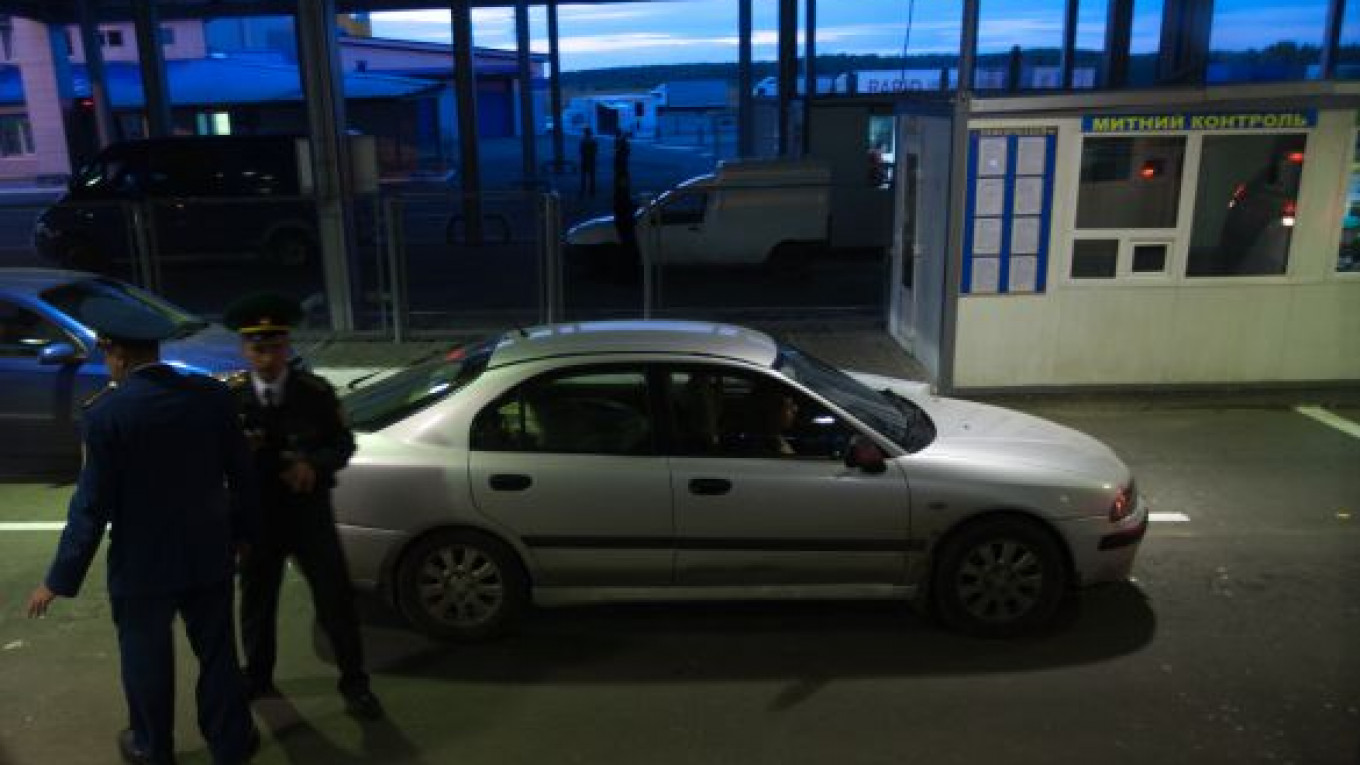The customs union of Russia, Belarus and Kazakhstan plans to ease customs procedures in an effort to improve the investment climate.
The Eurasian Economic Commission, which is in charge of the union, is pushing forward in its efforts to create a one-stop window at the borders to Russia, Belarus and Kazakhstan. Under this system, customs declarations would be filled out electronically as one document and made available to a variety of state agencies at once, said Vladimir Goshin, minister of customs cooperation at the commission at The Moscow Times customs conference on Wednesday.
One of the more striking features in the proposed system is the near absence of humans in the decision making process. Instead of individual customs workers deciding which goods can come through the border, businesses would file electronic declarations that would then be scanned and approved by automated electronic programs.
"If there is a possibility of excluding the human, subjective factor in the evaluation of results, we should fight for it," said Vitaly Survillo, vice president of the small- and medium-sized business association Delovaya Rossiya, who heads a business-led customs working group.
The proposal for the one-stop window was modeled on similar experiments done in the United States, Singapore and Sweden, Goshin said. The intent is that it will help the customs union countries to improve their investment climate.
The commission plans to soon post the outline of the proposal on its website and present it at a meeting of the heads of Commonwealth of Independent States member states slated for late October.
"All of our three countries [of the customs union] are now at different levels of readiness for the introduction of the one-stop window, but everyone understands that this is necessary," Goshin said.
However, he added that the new system might first be introduced to one sphere of customs, such as port authorities, to lessen the shock of the transition.
The one-stop-window proposal follows on the Russian government's efforts to tidy up customs procedures through an extensive roadmap that was approved one year ago.
Eight points on the roadmap have already been completed, though Survillo said that many of these points were checked off officially. The actual effectiveness of some of these points is still debatable, while other points are just hard to calculate, he explained.
Four points are considered to be in process and another four are incomplete. Among the latter, Survillo said the most worrisome is the inability to promote electronic cooperation between state agencies and a lack of an inventory of administrative offenses at the borders.
One of the reasons for these lags is that entrepreneurs are not scrutinizing the progress of the roadmap as much as they should, said Mikhail Antipov, head of the foreign trade support department at the Economic Development Ministry.
"Entrepreneurs were very active when the roadmap was being developed, but this activity has declined at the stage when they need to monitor its results," Antipov said.
Many of the substantial points on the roadmap are expected to be completed by January 2014, when all customs work would transition to an electronic platform and businesses would no longer be required to duplicate their electronic declarations in print.
Contact the author at e.smirnova@imedia.ru
A Message from The Moscow Times:
Dear readers,
We are facing unprecedented challenges. Russia's Prosecutor General's Office has designated The Moscow Times as an "undesirable" organization, criminalizing our work and putting our staff at risk of prosecution. This follows our earlier unjust labeling as a "foreign agent."
These actions are direct attempts to silence independent journalism in Russia. The authorities claim our work "discredits the decisions of the Russian leadership." We see things differently: we strive to provide accurate, unbiased reporting on Russia.
We, the journalists of The Moscow Times, refuse to be silenced. But to continue our work, we need your help.
Your support, no matter how small, makes a world of difference. If you can, please support us monthly starting from just $2. It's quick to set up, and every contribution makes a significant impact.
By supporting The Moscow Times, you're defending open, independent journalism in the face of repression. Thank you for standing with us.
Remind me later.






